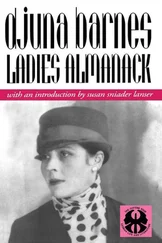She writhed under the necessity of being unable to wear anything becoming, being one of those panicky little women who, no matter what they put on, look like a child under penance.
She had a fancy for tiny ivory or jade elephants; she said they were luck; she left a trail of tiny elephants wherever she went; and she went hurriedly and gasping.
Her walls, her cupboards, her bureaux, were teeming with second-hand dealings with life. It takes a bold and authentic robber to get first-hand plunder. Someone else’s marriage ring was on her finger; the photograph taken of Robin for Nora sat upon her table. The books in her library were other people’s selections. She lived among her own things like a visitor to a room kept ‘exactly as it was when—‘. She tiptoed, even when she went to draw a bath, nervous and andante. She stopped, fluttering and febrile, before every object in her house. She had no sense of humour or peace or rest, and her own quivering uncertainty made even the objects which she pointed out to the company, as, ‘My virgin from Palma’, or, ‘The left-hand glove of La Duse’, recede into a distance of uncertainty, so that it was almost impossible for the onlooker to see them at all. When anyone was witty about a contemporary event, she would look perplexed and a little dismayed, as if someone had done something that really should not have been done; therefore her attention had been narrowed down to listening for faux pas. She frequently talked about something being the ‘death of her’, and certainly anything could have been had she been the first to suffer it. The words that fell from her mouth seemed to have been lent to her; had she been forced to invent a vocabulary for herself, it would have been a vocabulary of two words, ‘ah’ and ‘oh’. Hovering, trembling, tip-toeing, she would unwind anecdote after anecdote in a light rapid lisping voice which one always expected to change, to drop and to become the ‘every day’ voice; but it never did. The stories were humorous, well told. She would smile, toss her hands up, widen her eyes; immediately everyone in the room had a certain feeling of something lost, sensing that there was one person who was missing the importance of the moment, who had not heard the story; the teller herself.
She had endless cuttings and scraps from journals and old theatre programmes, haunted the Comédie Française , spoke of Molière, Racine and La Dame aux Camélias. She was generous with money. She made gifts lavishly and spontaneously. She was the worst recipient of presents in the world. She sent bushel baskets of camellias to actresses because she had a passion for the characters they portrayed. The flowers were tied with yards of satin ribbon, and a note accompanied them, effusive and gentle. To men she sent books by the dozen; the general feeling was that she was a well-read woman though she had read perhaps ten books in her life.
She had a continual rapacity for other people’s facts; absorbing time, she held herself responsible for historic characters. She was avid and disorderly in her heart. She defiled the very meaning of personality in her passion to be a person; somewhere about her was the tension of the accident that made the beast the human endeavour.
She was nervous about the future, it made her indelicate. She was one of the most unimportantly wicked women of her time—because she could not let her time alone, and yet could never be a part of it. She wanted to be the reason for everything and so was the cause of nothing. She had the fluency of tongue and action meted out by divine providence to those who cannot think for themselves. She was master of the over-sweet phrase, the over-tight embrace.
One inevitably thought of her in the act of love emitting florid commedia dell’arte ejaculations; one should not have thought of her in the act of love at all. She thought of little else, and though always submitting to the act, spoke of and desired the spirit of love; yet was unable to attain it.
No one could intrude upon her, because there was no place for intrusion. This inadequacy made her insubordinate—she could not participate in a great love, she could only report it. Since her emotional reactions were without distinction, she had to fall back on the emotions of the past, great loves already lived and related, and over those she seemed to suffer and grow glad.
When she fell in love it was with a perfect fury of accumulated dishonesty; she became instantly a dealer in second-hand and therefore incalculable emotions. As, from the solid archives of usage, she had stolen or appropriated the dignity of speech, so she appropriated the most passionate love that she knew, Nora’s for Robin. She was a ‘squatter’ by instinct.
Jenny knew about Nora immediately; to know Robin ten minutes was to know about Nora. Robin spoke of her in long, rambling, impassioned sentences. It had caught Jenny by the ear—she listened, and both loves seemed to be one and her own. From that moment the catastrophe was inevitable. This was in nineteen hundred and twenty-seven.
At their subsequent engagements, Jenny was always early and Robin late. Perhaps at the Ambassadeurs (Jenny feared meeting Nora). Perhaps dinner in the Bois—(Jenny had the collective income four dead husbands could afford)—Robin would walk in, with the aggressive slide to the foot common to tall people, slurred in its accent by the hipless smoothness of her gait—her hands in her pockets, the trench coat with the belt hanging, scowling and reluctant. Jenny leaning far over the table, Robin far back, her legs thrust under her, to balance the whole backward incline of the body, and Jenny so far forward that she had to catch her small legs in the back rung of the chair, ankle out and toe in, not to pitch forward on the table—thus they presented the two halves of a movement that had, as in sculpture, the beauty and the absurdity of a desire that is in flower but that can have no burgeoning, unable to execute its destiny; a movement that can divulge neither caution nor daring, for the fundamental condition for completion was in neither of them; they were like Greek runners, with lifted feet but without the relief of the final command that would bring the foot down—eternally angry, eternally separated, in a cataleptic frozen gesture of abandon.
The meeting at the opera had not been the first, but Jenny, seeing the doctor in the promenoir , aware of his passion for gossip, knew she had better make it seem so; as a matter of fact she had met Robin a year previously.
Though Jenny knew her safety lay in secrecy, she could not bear her safety; she wanted to be powerful enough to dare the world—and knowing she was not, the knowledge added to that already great burden of trembling timidity and fury.
On arriving at her house with the doctor and Robin, Jenny found several actresses awaiting her, two gentlemen, and the Marchesa de Spada, a very old rheumatic woman (with an antique spaniel, which suffered from asthma), who believed in the stars. There was talk about fate, and every hand in the room was searched and every destiny turned over and discussed. A little girl (Jenny called her niece, though she was no relation) sat at the far end of the room. She had been playing, but the moment Robin entered she ceased, and sat, her two small wax-like hands tender with the new life in them cupped up in her lap, staring under her long-lashed eyelids at no one else, as if she had become prematurely aware. This was the child Jenny spoke of later, when she called on Felix.
The Marchesa remarked that everyone in the room had been going on from interminable sources since the world began, and would continue to reappear, but that there was one person who had come to the end of her existence and would return no more. As she spoke, she looked slyly at Robin, who was standing by the piano speaking to the child in an undertone; and at the Marchesa’s words Jenny began to tremble slightly, so that every point of her upstanding hair—it stood about her head in a bush, virile and unlovely—quivered. She began to pull herself along the enormous sofa towards the Marchesa, her legs under her, and suddenly she stood up.
Читать дальше












